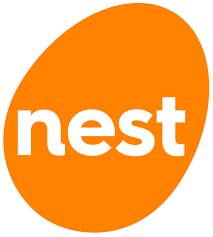


The National Employment Savings Trust (Nest) was set up by the government in 2010 as part of its “automatic enrolment” retirement saving initiative designed to get millions more people paying into a pension. This means Nest has a “public service obligation” – like the BBC or NHS – to make sure that every UK employer has access to a high quality workplace pension.
You can invest in a Nest pension if you are employed (and your employer uses the scheme) or self-employed. Nest currently manages more than £17.6 billion of UK pension savings, representing around a third of the UK workforce.
Its Ethical Fund, which Nest says is slightly higher risk than its standard fund, invests in companies with positive records on human rights, fair labour, fair trade, and the environment. It avoids investing in tobacco, arms and corrupt states, as well as companies with a bad human rights record, or that damage the environment.
Like all Nest pensions, its Ethical Fund is a ‘master trust’. This is a common type of defined contribution pension that has independent trustees who look after pension savings on behalf of the members. The major decisions are taken by the master trust, but your employer can still make decisions about contributions, investments, and benefits.
The Nest Ethical Fund follows a three-phase investment strategy, so your money is handled in a way that’s appropriate to your life stage. It is one of the only ethical pension options to do this.
Once you become a Nest member, you can easily access and manage your pension through your personal online dashboard whenever you like. When you log in, you’ll see how much is currently in your pension pot, including a breakdown of how much you’ve put in and how much is from your employer, plus any tax relief on your contributions. There’s also an option to transfer your other pots into your Nest account.
You can see your current Nest retirement date, the fund you are currently invested in, choose who you would like to inherit your pension pot, and keep your contact details up to date.
It’s important to keep your employment and estimated retirement details as accurate as possible so Nest can manage your pension accordingly (as mentioned above, it changes its investment strategy on your behalf the closer you get to retirement).
Nest created the Ethical Fund to meet the values that are most important to its members. It looks to invest in well-run companies that have good control of their supply chain (and don’t use child labour), are creating solutions to issues such as climate change and biodiversity loss, and are taking steps to reduce their carbon footprint.
It also screens out companies that don’t follow human rights conventions or are involved with activities that harm the environment and society such as fossil fuels and weapons production. Due to the war in Ukraine, Nest has removed all of its investments in Russian companies.
However, one or two of its top 10 holdings might raise an eyebrow from those who aren’t keen on big tech companies. As of February 2024, its top holding (at 4.6 per cent) was Apple. Other top holdings include Mastercard, engineering firm Linde, and professional services provider Accenture.
There are two charges for Nest members:
There are no charges for transferring pots into Nest.
The Nest charges compare favourably to other ethical pension funds.
Aviva charges an annual management fee of 0.4 per cent for its ethical self-select pension, dropping to 0.35 per cent on pots over £200,000.
The PensionBee Fossil Fuel Free plan has an annual fee 0.75 per cent, and its Impact plan charges 0.95 per cent. If your pension pot size is larger than £100,000 the fee will be halved on the portion of your savings over this amount.
Similar ethical pension funds worth considering are:
Are there any providers you desperately want us to go deeper on? Let us know here.
Risk warning: Do remember that the value of an investment and the income generated from it can fall as well as rise and is not guaranteed. Therefore, you may not get back the amount originally invested and potentially risk total loss of capital.
Lori Campbell is Editor of Good With Money. She previously worked as a senior reporter for the Sunday Mirror newspaper.